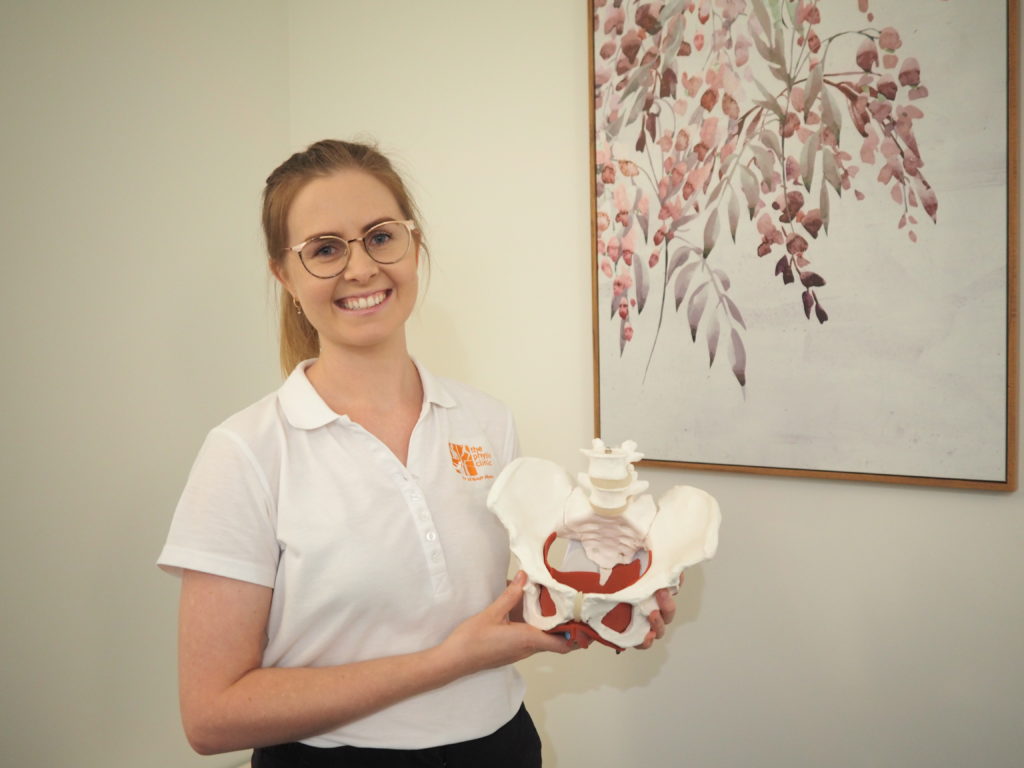

Pelvic floor issues can be an overwhelming topic to discuss but our physiotherapists who are trained in women’s pelvic health can safely and comfortably assess your concerns.
Your physio will complete a detailed assessment including thorough questions regarding your medical history, current health, bladder and bowel function, fluid intake, diet, exercise and pelvic floor health.
If indicated, and with your consent, your physiotherapist may perform an internal vaginal exam to assess the function and integrity of your pelvic floor muscles. Whilst an internal examination can help determine the most effective treatment and advice, it is not for everyone – other assessment options are available if you would prefer not to have an internal examination.
Based on your physiotherapist’s assessment findings, an individualised plan, including comprehensive advice, will be outlined to ensure you get the most out of your treatment.
Pelvic floor assessments can benefit women of all ages, it is never too early or too late to start looking after your pelvic floor.
How can we help?
Pregnancy
We can help you optimise your health and wellbeing throughout pregnancy, provide a safe exercise regime and advice regarding physical activity, and help prepare your body for labour, childbirth and the early post-partum period.
We can also provide treatment and advice for the following:
– Pelvic floor concerns
– Back and neck pain
– Pelvic girdle pain
– Wrist pain
– General aches and pains
Post-Partum
– Abdominal muscle separation assessment
– Pelvic floor assessment (including prolapse assessment)
– Scar massage
– Breastfeeding concerns such as mastitis
– Return to exercise post-birth
– Pain after a cesarean or vaginal birth
Pelvic Floor Concerns
Bladder Function
Bladder dysfunction can present in many ways and can have a significant impact on quality of life. Your physiotherapist can discuss and assess your concerns, discuss and provide treatment and management options available to help improve bladder dysfunction.
Whilst urinary incontinence (involuntary loss of urine) is common, it is not ‘normal’ and can be improved with an appropriate assessment and management plan. There are two main types of urinary incontinence:
- Stress urinary incontinence is the leaking of small amounts of urine during activities where there is increased pressure in the abdomen such as coughing, sneezing, laughing, walking & lifting.
- Urge urinary incontinence is the involuntary loss of urine (wee) associated with urgency (a sudden and strong need to urinate).
Prolapse
Pelvic organs prolapse (POP) is when one or more of the pelvic organs lowers into the vagina. The pelvic floor muscles are part of a support system for your pelvic organs, and strengthening these may help the symptoms of prolapse. Physiotherapy can help with the management of prolapse and teach you how to safely exercise with prolapse.
Bowel Function & Constipation
Pelvic floor dysfunction can contribute to constipation. For example, the pelvic floor muscles can contract instead of relaxing and make it difficult to empty your bowels.
Pelvic Pain
Pelvic pain can affect bladder, bowel, and sexual function. It is important to have pelvic pain assessed to identify factors that may be contributing to symptoms.























